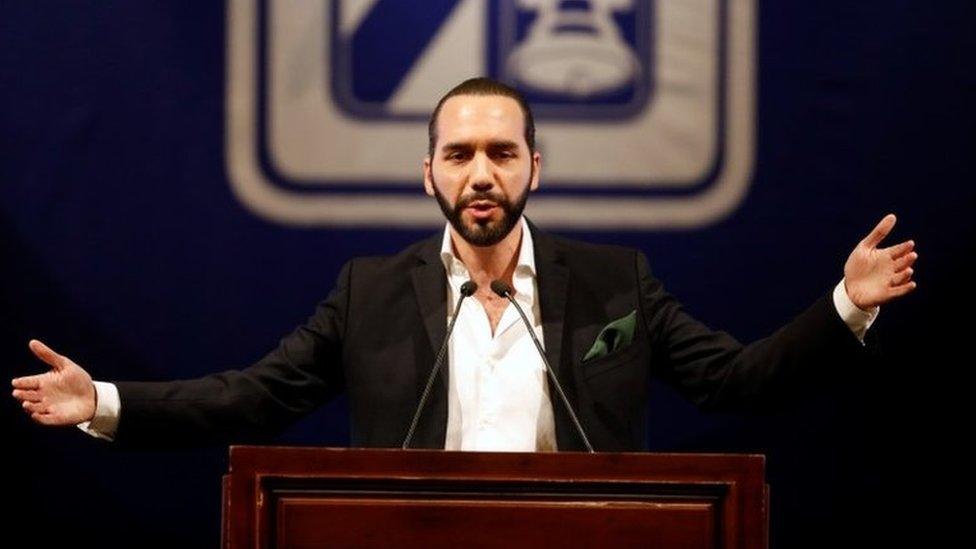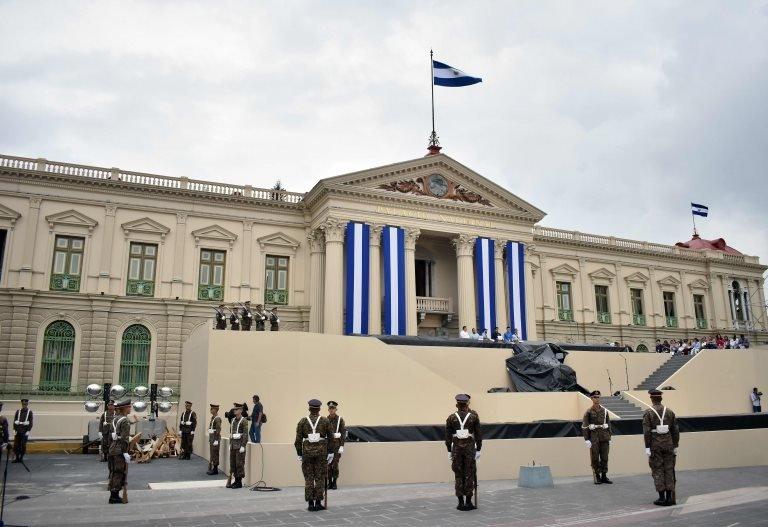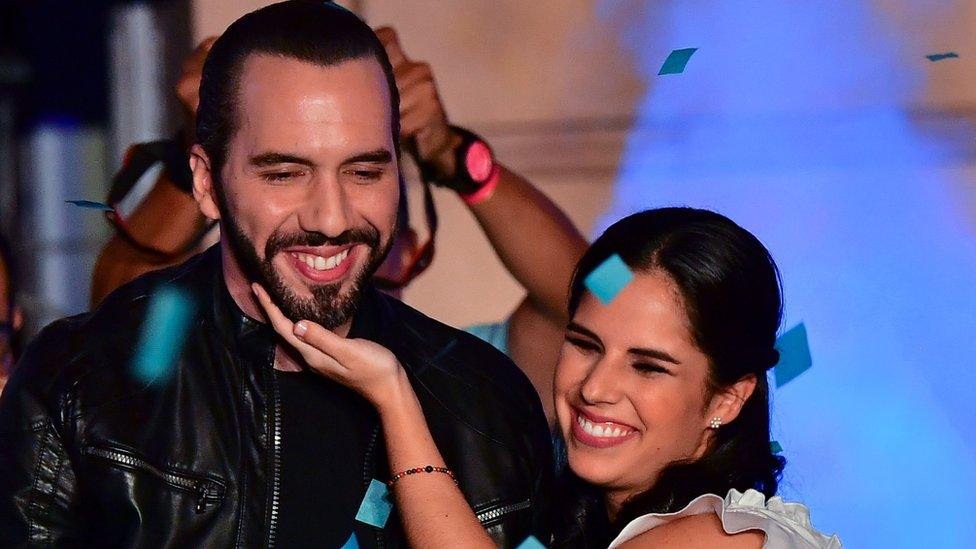Nayib Bukele: El Salvador's incoming leader promises 'new era'
- Published

Nayib Bukele won the presidency in the first round with 53%
A 37-year-old political outsider who has promised to bring "a new era" to his native El Salvador has been sworn in as the Central American nation's president.
During his five-year-term Nayib Bukele wants to tackle El Salvador's legacy of gang violence and corruption.
An avid social media user who projects a youthful, unconventional image, Mr Bukele also wants to break with the left-wing foreign policy alliances his predecessor in office, Salvador Sánchez Cerén, forged.
He says that instead he will prioritise El Salvador's ties with the United States and closely scrutinise the country's recently established relations with China.
Change at the top
Mr Bukele's convincing election victory on 3 February represents a break in the long-running dominance of the two traditional parties in El Salvador.

Key facts
Born on 24 July 1981 in the capital, San Salvador, he is of Palestinian ancestry
He managed his first business at 18 years of age
Began his political career with the left-wing Farabundo Marti National Liberation Front (FMLN)
Was expelled from the party for "disrespecting" the rights of women and throwing an apple at a local community leader
Has been described as "anti-system" and "opportunist" by analysts, having changed parties three times ahead of the election
Has named eight women to top government posts, seven of them as cabinet ministers

The left-wing Farabundo Marti National Liberation Front (FMLN) and the conservative Arena party had alternated in power since the end of the country's civil war in 1992.

For the first time since 1992, a candidate who is not from one of the two main parties will assume office
It comes as little surprise therefore that Mr Bukele's Gana party should be seen as fresh start. Almost two-thirds of respondents in a recent opinion poll by CID Gallup said the expected his administration to be good or very good.
Mr Bukele wants to reduce the number of young people joining El Salvador's notorious criminal gangs by bolstering education. He has also called for social programmes to prevent them from being recruited in the first place, and for social reinsertion programmes to prevent reoffending.
He regards the recent rise in violence as "one of the greatest challenges that we have because it affects all matters like tourism, investment".
'In ruins'
According to Mr Bukele, previous administrations have left El Salvador "in ruins".
The former mayor of San Salvador wants to distance himself from the foreign policy of outgoing left-wing President Sánchez Cerén, who maintained close alliances with the left-wing rulers of Nicaragua, Venezuela and Cuba.
Mr Bukele has said Venezuela's President Nicolás Maduro, whom he has called a "dictator", and Nicaraguan President Daniel Ortega, can "say goodbye" to their old alliance with El Salvador.
The incoming president has also criticised his predecessor's 2018 break with Taiwan and establishment of relations with China, calling the move "underhand" and saying he will re-examine agreements made with Beijing.
New ally
He has described the US as El Salvador's "natural ally number one", particularly on economic matters.
The US ambassador to San Salvador, Jean Manes, has welcomed Mr Bukele's overtures saying: "My job is going to be easier because we will have more in common."
"The president is sending positive signs. Also, he has a more pragmatic way of looking at matters," Ms Manes said.
Some of his rivals for the presidency are, not surprisingly, less upbeat about the young incoming leader's style.
Javier Siman, the defeated candidate for the Arena party, urged Mr Bukele to stop "playing politics on social networks" and "start acting like a statesman".
- Published31 March 2019

- Published7 March 2019

- Published4 February 2019
